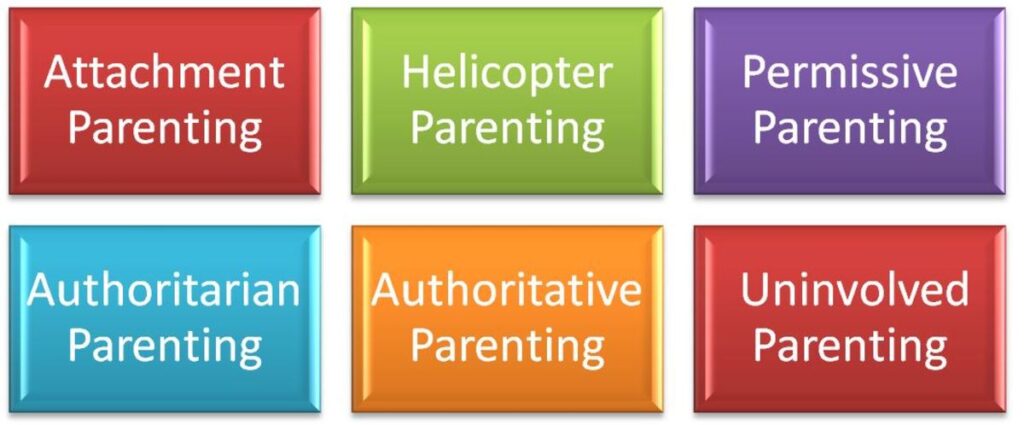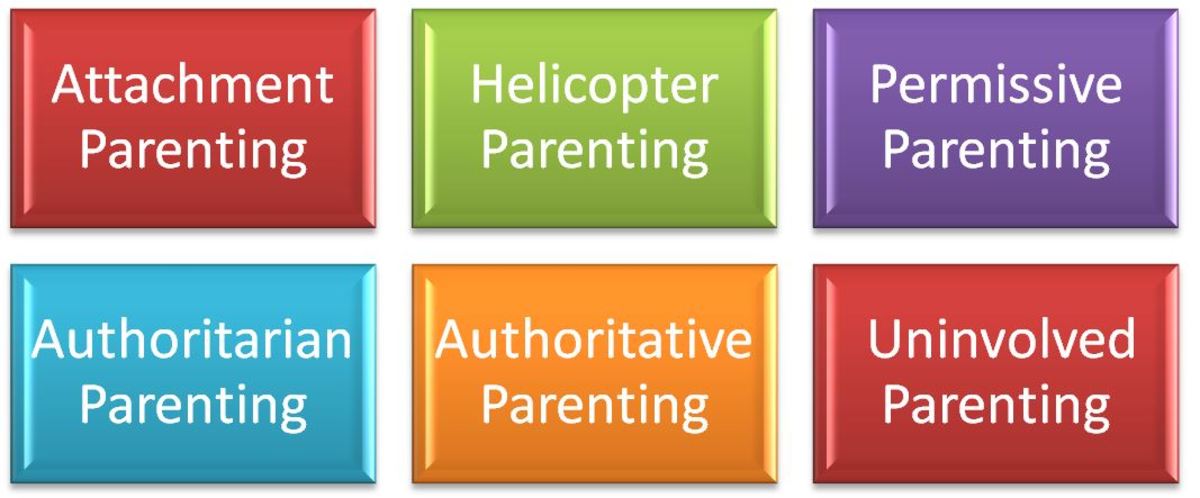
Essential Characteristics of Effective Parents: Nurturing Growth and Well-being
Parenting is a multifaceted and demanding role, shaping the lives of children and influencing their future development. Effective parenting goes beyond simply providing basic needs; it encompasses a range of characteristics of parents that foster a child’s emotional, social, and intellectual growth. Understanding these characteristics of parents is crucial for anyone seeking to raise well-adjusted, resilient, and successful individuals. This article delves into the key attributes that define effective parents, exploring how these traits contribute to creating a nurturing and supportive environment for children to thrive.
Love and Affection: The Foundation of Secure Attachment
Unconditional love and affection form the bedrock of a secure parent-child relationship. Children who feel loved and accepted are more likely to develop a strong sense of self-worth, confidence, and emotional security. This love should be expressed both verbally and non-verbally through hugs, words of affirmation, and quality time spent together. Showing genuine interest in a child’s life, listening attentively to their concerns, and offering comfort during difficult times are all vital expressions of love. Without these characteristics of parents, children will not feel secure.
The Power of Positive Reinforcement
Coupled with love, positive reinforcement is a powerful tool for shaping behavior. Praising and rewarding desired behaviors encourages children to repeat them. This can be as simple as acknowledging a child’s effort on a school project or expressing appreciation for their helpfulness around the house. Consistent positive reinforcement helps build a child’s self-esteem and motivates them to strive for excellence. Effective parents understand the importance of balancing praise with constructive criticism, focusing on effort and progress rather than solely on outcomes.
Effective Communication: Building Bridges of Understanding
Open and honest communication is essential for fostering a strong parent-child bond. Effective parents create a safe space where children feel comfortable expressing their thoughts, feelings, and concerns without fear of judgment. Active listening is a key component of effective communication, involving paying close attention to what a child is saying, both verbally and non-verbally, and responding in a way that shows understanding and empathy. Asking open-ended questions and encouraging children to elaborate on their experiences can help facilitate meaningful conversations. The ability to adapt communication styles to suit the child’s age and developmental stage is another crucial characteristic of parents.
Navigating Difficult Conversations
Effective communication also involves addressing difficult topics in an age-appropriate and honest manner. Whether it’s discussing sensitive issues like bullying, peer pressure, or relationships, parents should provide accurate information and guidance while respecting the child’s perspective. Creating a culture of open communication from a young age makes it easier for children to approach their parents with concerns as they grow older. [See also: How to Talk to Your Children About Difficult Topics]
Consistency and Discipline: Setting Clear Boundaries
While love and affection are essential, children also need clear boundaries and consistent discipline to learn self-control and responsible behavior. Effective parents establish age-appropriate rules and expectations and consistently enforce them. Consistency helps children understand the consequences of their actions and learn to make responsible choices. Discipline should be fair, consistent, and focused on teaching rather than punishment. Time-outs, loss of privileges, and natural consequences can be effective disciplinary strategies when used appropriately. Physical punishment should be avoided as it can be harmful and ineffective in the long run. The characteristics of parents include the ability to set boundaries.
Leading by Example
Children learn by observing their parents’ behavior. Therefore, it’s crucial for parents to model the behaviors they want their children to adopt. If parents want their children to be respectful, honest, and responsible, they must demonstrate these qualities in their own lives. Walking the walk and practicing what you preach is a powerful way to instill positive values in children. Parents should be mindful of their actions and words, as children are constantly observing and learning from them. This is one of the most important characteristics of parents. [See also: The Importance of Role Modeling in Parenting]
Patience and Understanding: Navigating the Challenges of Parenthood
Parenting is a challenging journey filled with ups and downs. Effective parents possess a high degree of patience and understanding, recognizing that children are still learning and growing. They understand that mistakes are a natural part of the learning process and respond to them with compassion and guidance. Patience is especially important during challenging phases of development, such as toddler tantrums or teenage rebellion. Taking a deep breath, remaining calm, and responding with empathy can help de-escalate stressful situations and foster a more positive parent-child relationship. These are vital characteristics of parents.
Self-Care for Parents
It’s important for parents to prioritize their own well-being. Taking care of one’s physical and mental health is essential for being an effective parent. Parents who are stressed, exhausted, or overwhelmed are less likely to be patient, understanding, and responsive to their children’s needs. Making time for self-care activities, such as exercise, relaxation, or hobbies, can help parents recharge and maintain a healthy balance in their lives. Seeking support from other parents, family members, or professionals can also be beneficial. Neglecting self-care can negatively impact the characteristics of parents.
Adaptability and Flexibility: Embracing Change
Children’s needs and developmental stages change rapidly. Effective parents are adaptable and flexible, adjusting their parenting style to meet their children’s evolving needs. What works for a toddler may not work for a teenager. Being open to new ideas, seeking advice from experts, and reflecting on one’s own parenting practices can help parents adapt to these changes. Flexibility also involves being willing to compromise and negotiate with children as they grow older, allowing them more autonomy and independence while still providing guidance and support. These are also characteristics of parents.
Embracing Individuality
Each child is unique, with their own strengths, weaknesses, and personality traits. Effective parents recognize and celebrate their children’s individuality, fostering their talents and interests while supporting them in areas where they struggle. Avoid comparing children to each other or to other children, as this can undermine their self-esteem and create unnecessary competition. Instead, focus on helping each child reach their full potential, based on their own individual abilities and aspirations. One of the crucial characteristics of parents is to encourage individuality.
Providing Opportunities for Growth and Exploration
Effective parents provide their children with opportunities to explore their interests, develop their talents, and expand their horizons. This can involve enrolling them in extracurricular activities, taking them on educational trips, or simply providing them with access to books, art supplies, and other resources. Encouraging children to try new things, take risks, and learn from their mistakes can help them develop resilience, creativity, and problem-solving skills. Supporting their academic pursuits and encouraging a love of learning are also important aspects of fostering growth. These are important characteristics of parents.
Fostering Independence
As children grow older, it’s important to gradually increase their independence and responsibility. This can involve giving them more chores around the house, allowing them to make their own decisions (within appropriate boundaries), and encouraging them to take on challenges. Fostering independence helps children develop self-reliance, confidence, and the ability to manage their own lives. However, it’s important to provide ongoing support and guidance as children navigate these new challenges. Parents display good characteristics of parents when fostering independence.
Conclusion: Cultivating Positive Parent-Child Relationships
In conclusion, effective parenting is a complex and ongoing process that requires a combination of love, communication, consistency, patience, adaptability, and a commitment to providing opportunities for growth. By cultivating these characteristics of parents and fostering positive parent-child relationships, parents can help their children thrive and reach their full potential. Remember that there is no one-size-fits-all approach to parenting, and what works for one family may not work for another. The key is to be mindful, intentional, and responsive to your children’s individual needs and to continuously strive to improve your parenting skills. These characteristics of parents will help your children thrive.

